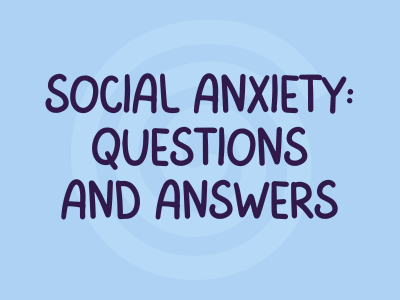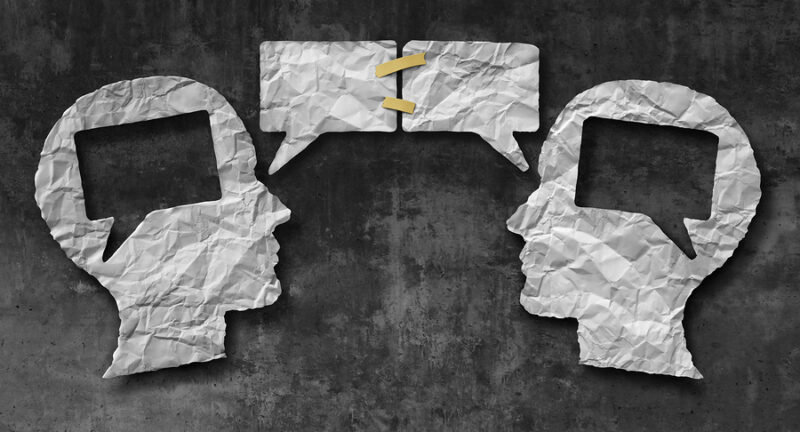
Social Anxiety Treatment in NYC: Your Questions Answered
Hi there. I’m Dr. Greg Kushnick, a psychologist in NYC who treats clients with social anxiety on a daily basis. I truly enjoy helping my clients to overcome their social struggles and I strive to offer the most effective methods for treatment of social anxiety. I hope you learn something new from the information provided below. Please don’t hesitate to contact me with any questions. All the best!
All About Social Anxiety Treatment
Do I have social anxiety?
Do you often avoid social situations? Are you mentally uncomfortable when you’re socializing, to the point where you’re preoccupied with saying the wrong thing, making a fool of yourself, being rejected or becoming revealed as a fraud? Do you often beat yourself up after socializing and find yourself ruminating about something you said that may have been interpreted the wrong way? Do you need to drink alcohol every tine you socialize? A “yes” to any of the above-mentioned questions suggests that social anxiety might be preventing you from living a more fulfilling life. Here is a short screening for social anxiety.
…But isn’t it normal to be anxious before and during social situations?
It is certainly normal– up to a point. We all experience nervousness before and during certain social situations. It really depends on how much the anxiety leads to avoidance, rumination, self-loathing and an inability to gain a sense of connection and fulfillment from your social engagements. Everyone has a weak spot when it comes to socializing. For example, you might be comfortable in most social situations, but when it comes to connecting with your high school or college friends, you feel extreme anxiety and discomfort. Social anxiety is considered a problem if it leads to significant and chronic avoidance of social opportunities or extreme anxiety that doesn’t subside while socializing, and it gets in the way of feeling connected to people and socially fulfilled.
Can my social anxiety really be helped by therapy?
What is important to know about coping with social anxiety in New York City?
New York City culture celebrates social performance. That translates into pressure. Pressure to seem like you have your life figured out, pressure to succeed and keep up with your peers, pressure to make lots of money. It’s so easy to slip into the mindset that everyone else is doing better than you are. That’s a typical cognitive distortion. Relieving yourself of some amount of social pressure can help you feel less anxious.
What is the best therapy for social anxiety?
In my experience, the best treatment for social anxiety is an approach that includes Cognitive Behavioral Therapy (CBT), which includes gradual exposure therapy. In my 25 years of experience, insight-oriented therapy for the treatment of social anxiety tends to be less effective. Insight alone will most likely do very little for social avoidance and negative beliefs about oneself. You need a behavioral component for therapy to be effective when you’re trying to improve your social success. CBT allows you to challenge problematic belief systems and use the therapy as a launching point for testing out new personal theories and beliefs in the real world.
Can you self treat social anxiety?
You can self treat social anxiety if it is mild and doesn’t compel you to avoid many social situations. At minimum, treat your social anxiety by talking openly with a friend who understands you and around whom you can be yourself. Check in regularly with this friend after social experiences and evaluate what went well and awry. Share any self-critical thoughts post-socialization. Keep checking in with this friend to remain accountable. Again, this is the minimum you can do for your social anxiety besides educating yourself about this issue. I recommend therapy because social anxiety is highly treatable with the right therapist.
How do therapists fix social anxiety?
I can only speak from my own experience as a CBT psychologist in New York. You can overcome social anxiety by altering your belief system, learning to dispute irrational beliefs, acquiring new social strategies and coping skills to feel more prepared with more options in social settings and testing reality by applying new skills and information in new social experiences.
How do you calm down social anxiety?
The goal is to feel more prepared in social settings. CBT therapy allows you to acquire skills and perspectives that give you more control over your anxiety. Therapy for Social anxiety can be relieved by learning how to manage a self-critical and self-loathing internal voice.
What happens if social anxiety is left untreated?
Untreated social anxiety that is considered moderate to severe is likely to lead to increasing levels of social avoidance, with fuels the power of negative thoughts about the self to guide your choices and dictate your mood.
What is the best exercise for social anxiety?
Where do you meet people with social anxiety in NYC?
Where should I go if I have social anxiety?
How do I tell if I’m socially anxious, depressed, or both?
Well, one distinction that some people find helpful is to think of anxiety as the anticipation that a catastrophe will occur in the future, as opposed to depression, which is the sense that a catastrophe has already occurred in the past. Do you tend to worry that something bad will happen to you, or that something has been already lost? The truth is that anxiety and depression often coexist. This is because social avoidance tends to lead to rumination, which tends to include thoughts about failure, embarrassment, shame and negative self-worth.
These negative thoughts and feelings promote more avoidance. Also, people justify social avoidance by the relief they believe they will feel by steering clear of a chance to have negative beliefs verified through negative social interaction. No one wants proof of their darkest thoughts about themselves, so avoidance serves a powerful short-term purpose. Long term, however, depression can set in if social engagements are chronically avoided, as a sense of helplessness and negative self-worth can take over if there isn’t positive social feedback or appropriate outlets to gain a healthy perspective about how social anxiety makes you think, feel and act.
Many people are just anxious or just depressed. Some people give themselves enough social wins and opportunities for connectedness to avoid getting depressed, despite their intense social discomfort. If you have low self-worth and you frequently interpret social interactions in the service of verifying your negative beliefs, then chances are you will develop depressive tendencies over time. If you frequently leave social situations feeling like a failure, embarrassed or shamed, the tendency to avoid will promote depression, and the tendency to push forward and keep striving for better experiences will be a buffer against depression.
Perfectionistic tendencies can also play a role in social anxiety and depression. (See below.)
Related Posts
On Anger, Depression and the Need to Be Right
How Much Do You Need to Be Right or Point Out Other People's Faults? Why do we...
How to Overcome Difficult Childhood Memories (as Seen on Huff Post)
Look around you. Everyone you see is carrying a truckload of childhood memories...


